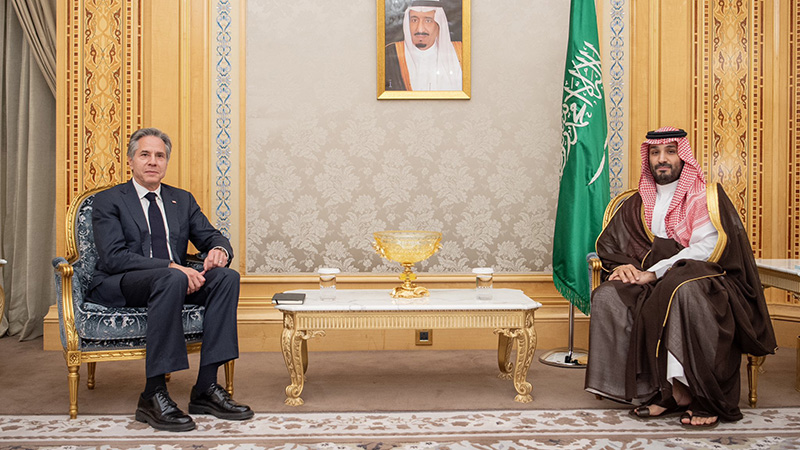
The ongoing crisis in Gaza has put pressure on the United States and Saudi Arabia to find a diplomatic solution, with Hamas accepting a ceasefire deal proposed by Egypt and Qatar potentially opening the door for negotiations. President Joe Biden announced that the US would not deliver 3,500 heavy ordnance bombs to Israel if it invades Rafah, adding weight to the administration's efforts to secure a new defense pact with Saudi Arabia. However, Israeli resistance to establishing diplomatic relations with a Palestinian nation and potential full-scale assaults on Palestinian cities like Rafah pose challenges for Biden's proposed grand bargain.
The Israeli offensive in Rafah has displaced over 450,000 Palestinians and strained the flow of humanitarian aid into Gaza. The United Nations Relief and Works Agency for Palestine Refugees in the Near East (UNRWA) plays a leading role in delivering aid to millions of Palestinians across the Middle East. Despite allegations linking UNRWA to Hamas, an independent review found no credible evidence to support these claims.
The Israeli battalions' push into Rafah comes as US officials work on finalizing the main elements of a deal between Israel and Saudi Arabia, which includes a U.S.-Saudi mutual defense pact and cooperation on a civilian nuclear program in Saudi Arabia. However, Israeli resistance to Palestinian statehood remains an obstacle to normalizing relations between Israel and Saudi Arabia.
Former CIA Director David Petraeus believes that the elusive two-state solution is the biggest barrier to normalization. The Israeli government's refusal to recognize Palestine as a state since 1948 has prevented diplomatic ties between Israel and Saudi Arabia. Despite this, there have been discrete but growing cooperation efforts.
The US cut off funding to UNRWA following Israeli allegations of links between the organization and Hamas. However, an independent review found no credible evidence to back these claims. The humanitarian situation in Gaza has worsened due to the ongoing conflict, with over 450,000 Palestinians displaced and aid delivery strained.
The Israeli forces' seizure of the Rafah border crossing and push into the city threatens to undercut Biden's bid for a new defense pact with Saudi Arabia. The potential three-way grand bargain between Israel, Saudi Arabia, and Palestine could be jeopardized if Israeli leaders do not move towards joining diplomatic talks.
The US has been criticized for its inconsistent stance on the conflict. While Biden has pledged to stop supplying offensive weapons to Israel if it continues its assault on Rafah, reports suggest that he plans to advance a $1bn arms transfer, including tank shells. This apparent contradiction raises concerns about the US's commitment to upholding international humanitarian law and promoting peace in the region.


